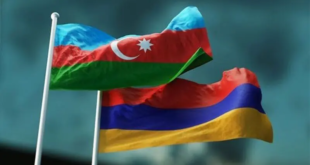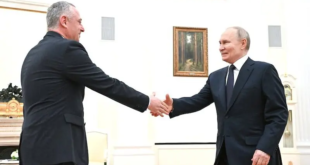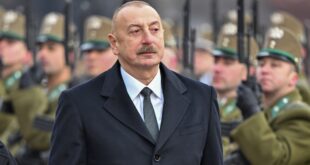 NATO should re-consider where it has bases and other infrastructure and the European Union should take concrete steps in response to Russia’s actions in Georgia, Estonia’s foreign minister said. Estonia, a former Soviet state which is a staunch ally of Georgia, is one of several countries advocating a tough line with Moscow over its clash with Georgia over two breakaway regions.
NATO should re-consider where it has bases and other infrastructure and the European Union should take concrete steps in response to Russia’s actions in Georgia, Estonia’s foreign minister said. Estonia, a former Soviet state which is a staunch ally of Georgia, is one of several countries advocating a tough line with Moscow over its clash with Georgia over two breakaway regions.
Â
Estonian Foreign Minister Urmas Paet, whose country of 1.3 million is one of the smallest NATO members, said a new situation had arisen since Russia sent troops into Georgia after Georgia tried to retake South Ossetia early this month.
Â
“It is adequate and appropriate to rethink and also look into where NATO infrastructure is at the moment,” Paet told Reuters in an interview.
Â
“Does it respond to the changed situation in the world?”
Â
He said he did not want NATO to be anti-Russian but it must respond to “the changes that we face in Russia and Russia’s hostile and aggressive behaviour.”
Â
“So that in this sense, Russia pressures NATO to analyse the situation and also the possibility to make some steps,” he added, stressing that all Estonia’s own military bases were NATO ones as well.
Â
Estonia and the other two Baltic states have been members of NATO since 2004. The main NATO presence in the Baltic states is air patrols by jet fighters.
Â
Estonia and Russia have had frosty relations since the 1991 collapse of the Soviet Union, but they worsened when Estonia in April 2007 moved a Soviet-era Red Army statue. Russia said this was insulting to the fighters of fascism.
Â
EU leaders are to meet on Monday to discuss a response to Russia. “We would like to see this willingness towards preparing for taking concrete steps,” Paet said.
Â
Two areas where the EU might take action are with the EU-Russia visa facilitation programme and plans for a new partnership and cooperation agreement, which expired in 2007.
Â
“We are in the position that to speak about complete visa freedom between the EU and Russia is not possible,” he said.
Â
He also noted that existing visa facilitation rules for Russian citizens meant they could get EU or Schengen visas for 35 euros (.49), but that Georgians paid 60 euros.
Â
Source: Reuter
 Eurasia Press & News
Eurasia Press & News



